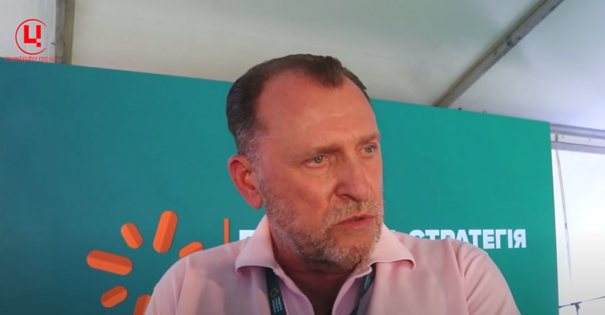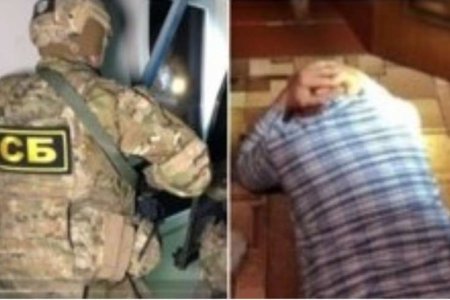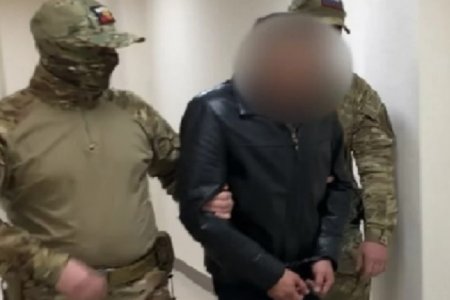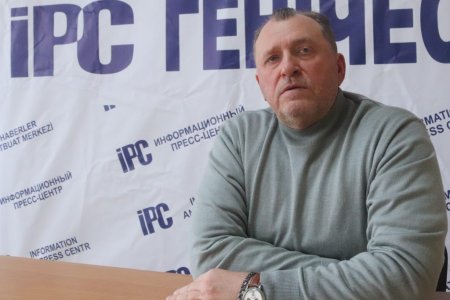
Russia is becoming ever more brazen in abducting Ukrainian citizens from areas recently seized by the Russian military and concocting insane charges against them in occupied Crimea. If, by 2015, human rights groups were warning that no Ukrainian was safe from arbitrary arrest and imprisonment in occupied Crimea, it is now clear that such danger applies to any Ukrainian territory that falls under Russian control.
One of the latest victims is Oleksiy Kiselyov, a retired naval captain and the former commander of the Ukrainian Navy’s Slavutych Command Ship, The 58-year-old left Sevastopol after Russia’s invasion in 2014 and moved to Henichesk in the Kherson oblast. There he co-founded the civic organization ‘Pereselenets SOS’, which upheld the rights of internally displaced people forced to leave occupied Crimea and Donbas.
Kiselyov has finally been able to speak with his lawyer, Alexei Ladin, and provide details about his abduction, and the torture he faced both at the hands of the Russian National Guard (Rosgvardia) in Henichesk, and then from the FSB in occupied Crimea.
He was seized on the street as he was heading to the district office of the Red Cross. Two men in plain clothes and balaclavas grabbed him, put a bag over his head, hit him in the stomach and forced him into a minivan. They later took him to his home, where they carried out a supposed ‘search’. What they took from the house he does not, as he had a bag over his head and was not allowed to move, but they appear to have simply stolen his car, with this seen driving around Henichesk.
He was then taken to the premises of Technical College No. 17 which Rosgvardia have seized and are using to imprison Ukrainians – and to torture them. Kiselyov was ‘interrogated’ with the use of beatings and electric shocks. They demanded to know about the Territorial Defence although he said from the outset that he had nothing to do with them.
He was, as earlier reported, handed over to the Russian FSB and taken to occupied Crimea on 27 July. He was held for two days and ‘interrogated’, also with the use of blows to the head and electric shocks, by the FSB. All that time, he was held with a T-shirt over his head and with his hands band. The FSB tried to get him to ‘confess’ to being a ‘terrorist’ and a member of the Crimean Tatar Noman Çelebicihan Battalion.
It is unclear when he was placed in the Simferopol SIZO [remand prison], but it was only on 29 July, a full week after his abduction, that ‘investigator’ Sergei Bushuyev applied to the Russian-controlled ‘Kievsky district court’ in Simferopol for Kiselyov to be remanded in custody for two months, with this duly rubberstamped by ‘judge’ Valentina Kamyanina
The FSB are claiming that in May 2016, joined the Noman Çelebicihan Battalion, provided other members with food and prepared them for carrying out a sea blockade of Crimea.
Artem Kiselyov is extremely worried about his father’s physical state and calls the charges against him fabricated and illegal. They are undoubtedly both, however Russia is increasingly using charges of involvement in the Noman Çelebicihan Battalion as a weapon against Crimean Tatars and other Ukrainians, with Oleksiy Kiselyov one of ten Ukrainians from the Kherson oblast who have been abducted and then ‘charged’ since Russia began its full-scale invasion of Ukraine.
Despite its name, the Noman Çelebicihan Battalion (also known as the Asker Battalion), is an unarmed civic organization which is perfectly legal in Ukraine. It was founded by Crimean Tatar activist and businessman Lenur Islyamov on 1 January 2016, with the first members people who had taken part in the civic blockade of occupied Crimea. This blockade was initiated by Crimean Tatar leaders Mustafa Dzhemilev and Refat Chubarov, together with Islyamov, on 20 September 2015. The blockade demanded an end to all trade, and supplies of electricity to Crimea while it remained under Russian occupation. There were initially very specific human rights demands, including an end to political repression; to restrictions on the media; and access to international observers. Battalion members merely promoted the goods and energy blockade, and backed Ukrainian border guards in areas near the administrative border with occupied Crimea.
Such a blockade should have been imposed by Ukraine immediately after Russia’s invasion and annexation. Moscow’s hysterical reaction and bluster about ‘terrorism’, etc. differ little from its present response to the warranted sanctions brought over its total invasion of Ukraine.
There is, however, one critical difference and that is the FSB’s ability to physically seize and torture Ukrainian citizens and then concoct politically motivated trials, claiming ‘involvement’ in an organization which was legal in Ukraine and which has not existed for some time. Six men were already imprisoned merely on charges of involvement in the Battalion before 24 February 2022, with that number having now risen to 16.
On 1 June this year, Russia’s Supreme Court passed another of several politically motivated rulings. It declared the entirely peaceful Noman Çelebicihan Battalion ‘terrorist’ and banned it on the territory of Russia and occupied Crimea. The Battalion was legal and peaceful before and remains so, regardless of any Russian classification, but the latter can seriously increase the sentence.
The Crimean Human Rights Group reports that the charge against Oleksiy Kiselyov is the one used in previous years, namely Article 208 § 2 of Russia’s criminal code (“taking part in the activities of an illegal armed formation, acting on the territory of a foreign state for purposes which are against the interests of the Russian Federation”). That, unfortunately, may change because of the Supreme Court ruling.
It is not only the charges that are surreal and have nothing to do with rule of law. While the indictment may well claim that the men arrested were trained in using weapons, no real evidence of this need be provided, since Russia standardly uses ‘secret witnesses’ whose testimony cannot be verified. Russian-controlled ‘courts’ invariably turn a blind eye to such alleged ‘witnesses’ being unable to answer any questions except those that coincide with the indictment, and most often prevent the defence from asking them.
Six Crimean Tatars are currently serving sentences of up to 10 years’ imprisonment, without any crime, merely on a charge of involvement in the Noman Çelebicihan Battalion in mainland Ukraine. These are: Edem Kadyrov; Fevzi Sahandzhy; Dilyaver Gafarov; Nariman Memedinov; Aidyn Mamutov and Medzhit Ablyamitov.
The list below includes those reported here earlier, as well as those reported by the Crimean Tatar Resource Centre to have been seized recently in occupied parts of the Kherson oblast.
4 March Nasrulla Seidaliev is the Deputy Head of the Kherson Regional Mejlis of the Crimean Tatar people. He is 62 and from the town of Rikove in Kherson oblast.
27 March Rustem Gugurik, a taxi driver from Novooleksiivka (Kherson oblast), was arrested by the FSB on 27 March, when, together with his wife, Viktoria and their 6-year-old daughter, he was at the Chonhar checkpoint planning to enter occupied Crimea. Instead, the Russian FSB ‘border-guards’ seized Gugurik and held his wife and daughter for around 56 hours, without any food, only water. 50-year-old Rustem Gugurik denies any involvement in the Battalion, but did take part in the Crimean Blockade. He stated back in 2016 that he was sure that his involvement in the blockade was the reason why he and his brother, Bekir, were banned from entering occupied Crimea from 2016 to 1 January 2021.
9 April Arsen Ibraimov , a resident of Kherson, was detained at Kalanchak by the Russian FSB, who claimed, as though this were justification, that he “took an active part in the goods and energy blockade of Crimea, and also in anti-Russian protests in the area of the ‘Chonhar’ checkpoint.”
According to Ibraimov’s lawyer, Alexei Ladin, his client has never been involved in the Battalion.
11 April Artur Mametshaev from Henichesk
14 April Rustem Osmanov was seized by Russians who burst into his home in Kalanchak, Kherson oblast.
20 May Ruslan Abdurakhmanov, from the village of Azovske
25 May Aider Umerov, from the village of Partisany in the Henichesk raion
5 June Mamed Dovhopolov (known only that he too is from Kherson oblast)
21 July Ihor Khalilov from the village of Salkovo in the Henichesk raion
22 July Oleksiy Kiselyov from Henichesk



